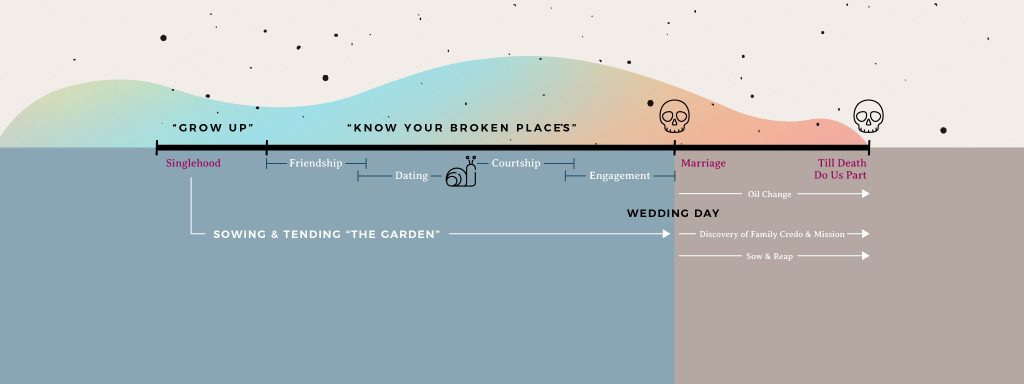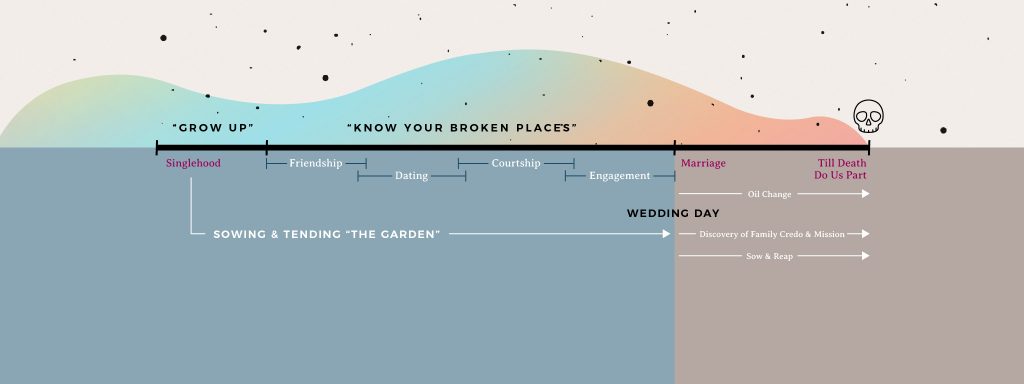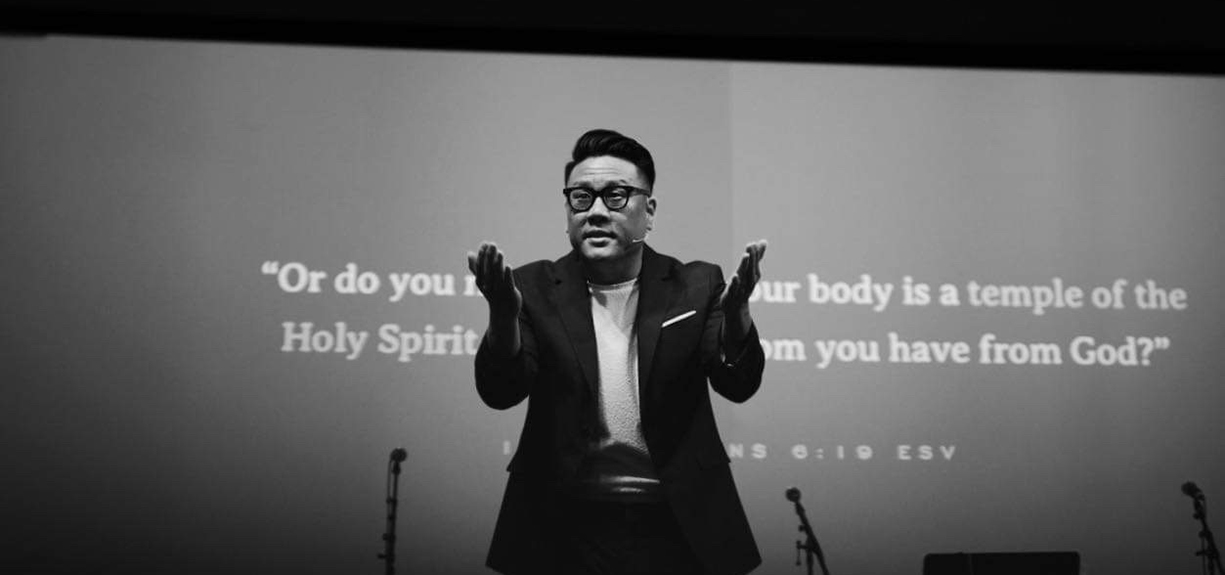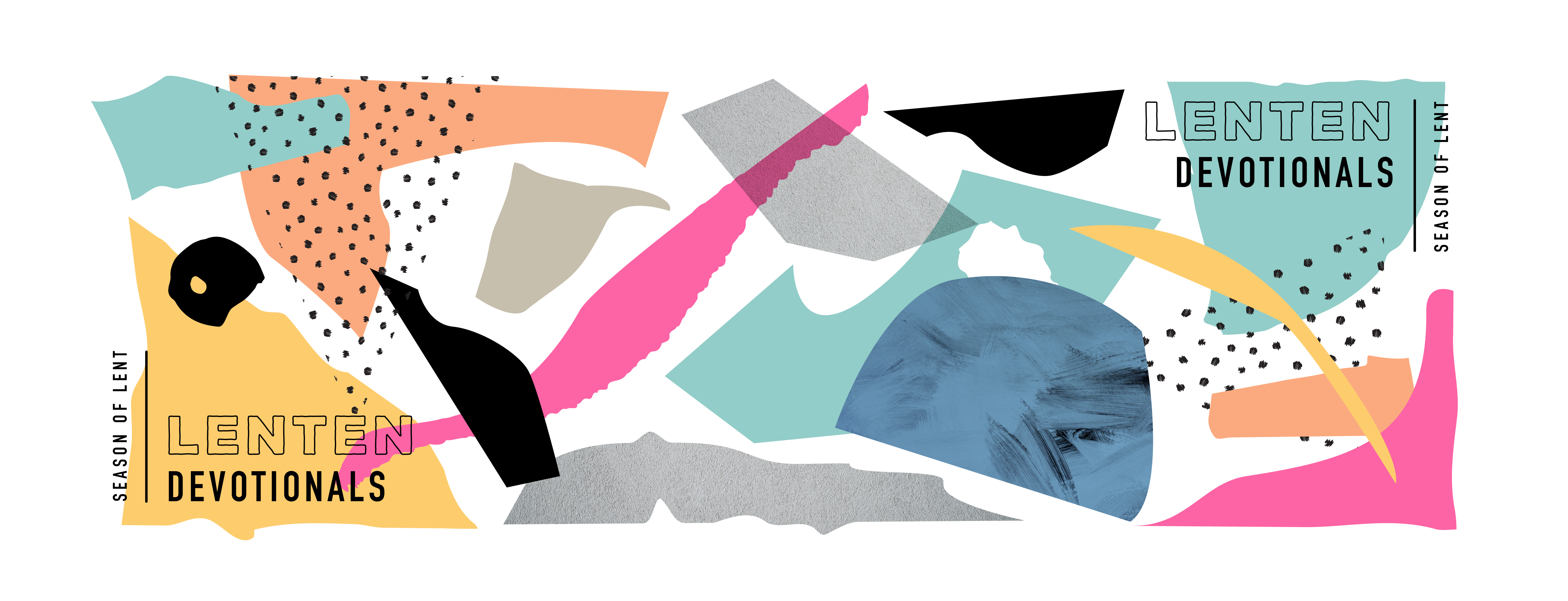We’re Dating, Now What? Pt. II
How can we date wisely and well in preparation for marriage?
Dr. Neil Warren, the founder of E-harmony and the author of Finding the Love of Your Life, offers this advice after many years of study on all things relationships:
“Take it slow.”

So two ways we can take it slow during the dating season are:
- Take it slowly by taking your time
- Take it
slow ly by touching after covenant is established
Take your time by dating at a snail’s pace. This means: Don’t give your body, mind, and emotions over to the other so quickly.
How do we date at a snail’s pace?
- Meet the family members much later, preferably in the Courtship stage.
- Don’t make promises or declare undying love too early.
- Treat the relationship like an organic garden, tending to it and giving it seasons to pass through.
- Take time to really know each other: Ask questions, “What is your vocational credo?” “Where are you headed?” “Are we equally yoked?”
Take it slow by having sex only after covenant.
During the dating season, spend lots of time together. And after marriage, spend a lot of time together and spend a lot of time touching each other.
The negative impacts of pre-marital sex include:
- It destroys your witness as a Christian to your non-christian significant other.
- It fosters a disrespect for your walk with God to your Christian significant other.
- It damages friendship by creating the illusion of intimacy.
- It doesn’t allow for an organic development of godly companionship.
But why do we still engage in pre-marital sex, even if we “feel it’s wrong?”
Our theology of sex has been shaped by the world, so our behavior follows suit. We feel guilty, but we don’t know why we feel guilty. We just know as Christians that pre-marital sex is “bad.”
Here are some lies that we believe.
Lie 1A: The mind is more important than the body. The spiritual more valuable than the material (Plato).
Lie 1B (The Christian version): Mind and soul are what constitutes as the real Self, hence when I die, the Body will be left to rot with this rotting world, and the real Me will go to a disembodied paradise or heaven. (As if the body is a ‘decaying tomb’ that we will eventually be free from to go to a better place.)

But the truth is that the body is not a tomb. The body is a holy temple that God wants to inhabit.
1 Corinthians 6:19 says, “Or do you not know that your body is a temple of the Holy Spirit within you, whom you have from God?”


God cares about your body and creation. Biblical eschatology gives us a biblical view and value of our anthropology. It’s realizing that we aren’t going anywhere. Heaven is coming to us.

We are being redeemed by the resurrection and the transformation of our mind, body,
The creation narrative affirms the renewal of all things in the end. It points to God’s deep love for the human body and creation. He doesn’t want to get rid of the earth, the material, creation and our bodies. He said “It is good,” and He wants to resurrect it, renew it and give us the fullest version of it forever—as He intended for it to be.
Lie 2: Sex is bodily, and nothing spiritual or
The truth is sex always involves the whole self. Union occurs during sex, whether you like it or not.
1 Corinthians 6:15-16 says, “Do you not know that your bodies are members of Christ himself? Shall I then take the members of Christ and unite them with a prostitute? Never! Do you not know that he who unites himself with a prostitute is one with her in


The “truth about sexual intercourse: it is a sensual act with spiritual implications, a physical act with
Lie 3: My body belongs to me, for my pleasure. My body answers no one except me and my desires.
Truth: My body belongs to God, for Him, for His pleasure. I will give an account of what I did with my body. My body was purchased by God and belongs to Him.
“Do you not know that your bodies are temples of the Holy Spirit, who is in you, whom you have received from God? You are not your own; you were bought at a price. Therefore honor God with your bodies.” – 1 Corinthians 6:19-20
Truth: Our bodies also belong to our future spouses. (1 Corinthians 7:3-5)
Think about this:
Every person you sleep with, you are giving them authority over you and ownership over your heart. Make sure they give you legal authority over them as well before you sign, seal and deliver your rights over to that person.
“And now we can see clearly why Paul thought sexual intercourse by unmarried people was wrong. It is wrong because it violates the inner reality of the act; it is wrong because unmarried people thereby engage in a life-uniting act without a life-uniting intent. Whenever two people copulate without a commitment to life-union, they commit fornication… But his absolute no to sexual intercourse for unmarried people is rooted in his conviction that it is a contradiction of reality. Intercourse signs and seals — and maybe even
So this is a healthy Christian journey toward covenant and consummation.

The Christian truth is simply this: there is no Christian worship without the body’s involvement.
Christian religion involves the entire self.

Jesus gave his body. That’s why we celebrate with Communion because we have a God who gave of Himself entirely. Eucharist is not a celebration of God’s good intentions, knowledge, or special revelations. The Eucharist is the celebration of God’s love displayed when His mind, heart, and body was given completely over for us.
We are celebrating His Body and Blood.
“Therefore, I urge you, brothers and sisters, in view of God’s mercy, to offer your bodies as a living sacrifice, holy and pleasing to God —this is your true and proper worship.”
— Romans 12:1
In Marriage: It is what you do with your bodies in marriage (giving yourself over to your spouse in love, forgiveness, tenderness, sacrifice, sexual intimacy) that expresses your devotion and worship to God.
In Dating: It is what you do and
Today, let’s re-offer our bodies as living sacrifices.
“Merciful God, I present my body, a living sacrifice.”
“God, my body, a living sacrifice.”
“God, my body.”

You can listen to the sermon We’re Dating, Now What? Pt. II from the Ephesians series that inspired this post here.
All images and materials are copyright protected and are the property of EKKO Church unless otherwise noted and credited to their maker. Please do not copy or distribute without permission.
For Further Reading:
Smedes, Lewis B.. Sex for Christians: The Limits and Liberties of Sexual Living
A New Heaven and a New Earth by Richard Middleton
Surprised by Hope by NT Wright
Links
https://thebibleproject.com/videos/nephesh-soul/
Joy in the Breaking — Week 4 (2019)
On this journey as Christians, we grow in adoration for Jesus when we remember again how great that chasm that was between us and God. But often when we are confronted with the appalling nature of our sin, there are two responses we usually take: One is a desire to control. We want to fix ourselves or at least appear like we have it all together. As if God did the heavy lifting with our conversion, but it’s okay now – we can take it from here. Our hearts grow stubborn and calloused with pride.
The other direction we run is shame. We despair, “Why am I still dealing with this? I thought I’d be better by now.” We run, we hide, we cover-up. Wounds fester because we fear giving them to God, we fear rejection. That He’ll be disappointed or frustrated.
But in both of these responses, we drive an ocean between us and God. We actually reject God. The reality is, God is not impressed with my pretense, nor is He annoyed with my brokenness. And this is the wild and unrelenting grace of God, that time and time again, He desires for my wandering and obstinate heart. That He’s Almighty God, perfect in every way, Holy and RIghteous and wholly justified to judge me with a heavy hand, and yet He loves a stubborn and mopey sinner like me? And with compassion and a warm embrace He receives me when I turn back to Him.
Listen and meditate with us as we read from David’s prayer in Psalm 51.
Against you, you only, have I sinned
and done what is evil in your sight,
Behold, you delight in truth in the inward being,
and you teach me wisdom in the secret heart.
Purge me with hyssop, and I shall be clean;
wash me, and I shall be whiter than snow.
Let me hear joy and gladness;
let the bones that you have broken rejoice.
Hide your face from my sins,
and blot out all my iniquities.
Create in me a clean heart, O God,
and renew a right spirit within me.
Restore to me the joy of your salvation,
and uphold me with a willing spirit.
For you will not delight in sacrifice, or I would give it;
The sacrifices of God are a broken spirit;
a broken and contrite heart, O God, you will not despise.
Amen.
When we stay in these places of self-sufficiency and guilt, we’re actually telling God, that we’re done here. We are out.
But when press in, despite the mess and the fear, when we turn toward God, with defeat in tow and with the ugliness of pride, this is our repentance and this is where we are restored. Though we tremble under the knife, this is the joy of our salvation. Submitting ourselves to our Great Surgeon and trusting His careful hand in the crushing and the breaking. There is grace still on the other side of our sorrow and our letting go. And there is life and freedom being ready to be born out of confession and repentance.
Whether we’ve been on this journey for a few months or for many years, we are still on this side of heaven. God is still at work in us, and we can either let Him in or close Him out. So this Lenten season, we want to ask God, in His infinite kindness and mercy – to either crush us or break us, so that we can be restored in Him. For our God is gracious and compassionate. He will not turn His face from us if we return to him. Repentance invites God back into the room we’ve pushed Him out of.
Whether in our confidence or doubt, in sorrow or content, we practice a life of repentance by confessing again and again our inadequacy and confessing our need for God.
So this week, let’s repent as individuals and as a body. Let’s fast our need to cover up or hide, but rather feast on being broken and contrite before God. What are the rooms in your heart that you’ve closed off? What are the tender parts of your mind that you wince at giving to Him? If you’re comfortable, share this with members in your peloton or loved ones. Invite them to pray over you as you pray this over yourself.
“God, I’m Yours. I submit to Your hand. Crush me, break me, so that I can be one with You again.”
And for Parents, a prayer of blessing for your child:
“Child, may you come to know the grace and big, big love of God that is more than enough for you.”
Amen.
We’re Dating, Now What? Pt. II
We’re Dating, Now What? Pt. I
Therapists often tell Pastor Bryan:
“Pastor Bryan, I wish couples would go through counseling before they get engaged. Often by the time they get to me they have grossly overestimated their ability to build a good foundation for marriage. And they often get married due to the wedding ball already rolling…”
Essentially, they are confirming what Alain De Botton says in “Why You Will Marry the Wrong Person”:
“We are collectively a great deal more interested in a beautiful wedding than a tolerable marriage.”
So some wisdom to consider in this dating season from Benjamin Franklin: “An ounce of prevention is worth a pound of cure.”
We need to date wisely and well, in order to prepare ourselves properly for marriage.
This season, before you even meet your future spouse, should be done intentionally and well. This is the season to prepare. To “know your broken places,” and to “sow and tend” to the garden with Jesus.

In Galatians 6:7-8, it says it like this: “Do not be deceived: God cannot be mocked. A man reaps what he sows. Whoever sows to please their flesh, from the flesh will reap destruction; whoever sows to please the Spirit, from the Spirit will reap eternal life.”
How do we date wisely and well?

Train Your Eyes: Train your eyes to see as Christ sees the world and His people—especially those of the opposite sex.
Because how you see matters and shapes your whole life — and it shapes how you see your partner.
“The eye is the lamp of the body. If your eyes are healthy, your whole body will be full of light. But if your eyes are unhealthy, your whole body will be full of darkness.”
— Matthew 6:22-23 NIV
Jesus said this in between his statements about treasure and money. In context, He is saying, how we view money will determine how we use it and how it uses us.
But this truth can be applied to our relationships as well.
Relationships—like “money”—is a tool to bring glory to God and loving kindness to others. We are blessed with relationships to be a blessing.
Hence, we need to “see” our partners as someone we will serve God with and not someone we will “use.”
Some of the common views we see the opposite sex:

- Men often struggle with a “commodified” view of women
- Women often struggle with a “comfort food” view of men
Both skew our vision of seeing the Other.
Both carry the same unhealthy and selfish mantra:
“You exist to make me feel better.”
But this is contrary to the call in Ephesians. In marriage, we are called to be a blessing to our spouse. We are called to submit to the other.
When we have our eyes trained to see our partners as the potential for satisfaction, then you will have a hard time submitting and serving them.
For the men of EKKO:
In Job, it says, “I made a solemn pact with myself never to undress a girl with my eyes.”
Jessica Rey explains what happens to the brain when we lust:
“Brain scans revealed that when men are shown pictures of scantily clad women, the region of the brain associated with tools, such as screwdrivers and hammers, lit up. Some men showed zero brain activity in the medial prefrontal cortex, which is the part of the brain that lights up when one ponders another person’s thoughts, feelings, and intentions. Researchers found this shocking because they almost never see this part of the brain shut down in this way… ‘It’s as if they are reacting to these women as if they are not fully human. It is consistent with the idea that they are responding to these photographs as if they were responding to objects, not people.’”
Remember, we must see other people as treasures, not the potential source for satisfaction and happiness.

The second thing is to talk with your peloton.
Talk to those you respect and trust for their input, advice and opinion.
“Stupid people always think they are right. Wise people listen to advice.” (Proverbs 12:15 GNT)
But why don’t we ask?
Andy Stanley explains:
“One of the primary reasons we don’t seek counsel from the wise people around us is that we already know what we are going to hear — and we just don’t want to hear it.”
So who are the wise people in your life?
Invite and involve them.
The wise person has not—and does not—always agree with your choices.
Ask: “Is this a wise thing to do?”

Thirdly, third-wheel with Jesus.
“But seek first the kingdom of God and his righteousness, and all these things will be added to you.”
— Matthew 6:33 ESV
In this season, you should be busy serving God for His kingdom.
It is your calling to cultivate your relationship with God at each step in your life.
You’re called to planting God’s kingdom here on earth. At each stage of your life, you need to learn to obey and overcome certain temptations and dig deeper to build intimacy with Him.

Pastor Bryan’s version of the Triangle of Love: The triangle is made by two ladders. And each rung represents steps of obedience.
As you climb this ladder, you learn how to serve, learn how to pray. Seek first the kingdom of God by stepping on each rung, asking God at each stage: “What garden do you want me to cultivate at this stage of my life.”
Climb this ladder. Trust that God is preparing that person for you as you seek first His kingdom.

Tend to your garden with Jesus, so that when your spouse comes into the picture, they will be the third-wheel to your relationship with God.
The opposite of this is living “parallel lives,” described by John Gottman.
Parallel living happens when you are together, but living side-by-side. This one way that we destroy a marriage: when one or the other lets go of their relationship with God in pursuit of safety or career…
There’s nothing holding you together.


So the third-wheel is not you or God… the third-wheel is your spouse.
Make the most of your singleness and give it completely to His service.
“Submit to one another out of reverence for Christ.”
— Ephesians 5:21
These are the years you develop and foster a reverence for God.
Pray this with us this week:
Step
By
Step
I am listening for Your voice.
I will go where You go.
Step
By
Step
You are my first love,
You will be my last.
Amen.
You can listen to the sermon We’re Dating, Now What? from the Ephesians series that inspired this post here.
All images and materials are copyright protected and are the property of EKKO Church unless otherwise noted and credited to their maker. Please do not copy or distribute without permission.
Ekklesia Study // March
“Am I What I’m Looking For?” — Ephesians Series
“Submit to one another out of reverence for Christ. Wives, submit yourselves to your own husbands as you do to the Lord. For the husband is the head of the wife as Christ is the head of the church, his body, of which he is the Savior. Now as the church submits to Christ, so also wives should submit to their husbands in everything.” – Ephesians 5: 21-24 (NIV)
Everyone desires love and respect—whether from your spouse, significant other or from friends. Below are Godly characteristics that help us prepare for marriage (single or dating) or helps sustain a good marriage (married).
Humility
- To the large group: What is humility?
- Break into groups of 3-4:
What area of your life do you need to practice humility?
Why do you think you struggle in this area? - In the same groups:
How can you foster humility in your life? (i.e. How can you ask for help? Who can you celebrate? How can you practice gratitude?)
Honesty
- To the large group: What does it mean to be an honest person?
- Break into groups of 3-4:
What area of your life is there a lack of integrity or a disconnect between your private and public life?
- In the same groups:
How can you bring congruence and honesty in this area of your life?
Humor
- To the large group: How can humor be an expression of hope?
- Break into groups of 3-4:
What situation, circumstance, or relationship makes you worrisome, gives you anxiety, or makes you fearful?
- In the same groups:
How can you practice “hopeful humor” in this situation, circumstance, or relationship? What would it look like to practice one of the below? Be as practical as you can:
- Humor helps create enough distance to see the ecosystem that is causing the problem.
- Humor helps defuse the emotional bombs that will create new problems further distracting those involved from the ecosystem that created the problem in the first place. The godly spouse absorbs anxiety and churns out an atmosphere of hope.
- Humor helps drownout negative and fearful imaginations and creates a space for new ideas and innovation and an openness to hear new perspectives.
- Humor helps disengage with the tense situation at hand through the spirit of playfulness long enough for the body to calm itself down and recalibrate itself for better, smarter, more creative ideas to flow.
- The humorous spouse is the spouse who has been deeply dependent on God and has developed through a life of prayer a mellow heart and hopeful outlook on life.
End your time by praying for one another in smaller groups.
Stability // March
We live in a fast paced and busy world. We go from task to task, from one thing to the next without stopping and before we know it, the day is over. We live with a frantic pace.
They say human beings walk 3mph. Jesus walked everywhere. You could say it was a product of his time, until you begin to see the intention he lived with. Jesus lived a busy life, but he was never in a rush. He didn’t forsake quiet moments with His Father. He took time to withdraw from the crowds and was flexible enough to be interrupted. He went at the pace of 3mph. Matt Canlis says,
“You have to slow down enough to catch up to God.”
Matt is describing the very opposite spirit we have to cultivate as leaders. We have to slow down enough to catch up to what God is saying and doing, not only in ourselves, but in the members of our Ekklesias. It’s realizing that the process of redemption is slow. Watch the video on Stability here.
Wait
Wait for the Lord;
be strong and take heart
and wait for the Lord.– Psalm 27:14
Waiting is one of the most difficult spiritual practices in a microwave type world. But its in intentional moments of waiting that helps us slow down and see how rich God’s presence is in every moment. It’s in slowing down that we catch up to God.
Here are some tips to slow down and wait on God’s presence:
– Eliminate distractions, like constantly looking at your phone. Try grayscaling it!
– Limit the number of hours dedicated to media per week.
– Spend time with God with no agenda (i.e. not asking for anything or to produce something).
Water
“I planted the seed, Apollos watered it, but God has been making it grow. So neither the one who plants nor the one who waters is anything, but only God, who makes things grow.” –1 Corinthians 3:6-7
You can’t water a plant all at once. It’s not like filling up a gas tank. Watering a plant takes care, time, attention. You have to check in and see how it’s doing. It requires long-suffering. The benefit of walking with others for a long time is that you stay long enough to see God’s grace working within them. You begin to see people as Eugene Peterson began to see them: not as problems to be fixed, but as mysteries to be explored.
View your Ekklesia like a garden you need to tend to, knowing your job is to be present and you will see God grow your members into Christlikeness.
Watering doesn’t mean 3 hour conversations on the phone. It can be as simple as a short text message.
Here is to waiting on the Lord together and taking the time to water as we see our God grow us from the inside out.
Bringing Joy to God – Week 3 (2019)
During this season, we’ve been practicing different spiritual disciplines to turn our gaze toward God. We’ve been creating space in our hearts and proclaiming His truths over our circumstances, and in doing so are discovering again that He is our joy and that He satisfies all of us.
And in this lifelong journey of finding God with the help of these spiritual disciplines, we actually begin to respond to Him through worship.
Worship is adoration for God and an expression of His worthiness.
And it blossoms out of the discovery of who God is.
And here is the arresting truth: that we can actually bring God joy in our worship.
It’s not that He’s self-conscious nor does He need our songs or money. Our worship doesn’t add or subtract from Him in any way.
But rather, this God who has everything and is complete in every infinite way, takes delight in us.
I want you to pause here for a moment. Because this begins to shift our paradigm.
God actually wants your heart.
As we are almost halfway through this Lenten season. I want to use this week to take a breath. Because our lives as Christians aren’t meant to be lives of discipline for the sake of discipline, or action for the sake of action.
Rather, God is inviting us into a dance. As we are filled with the joy and satisfaction of knowing God, we actually bring Him joy by reflecting and magnifying Him in our worship.
Meditate on passages of Psalm 100:
Worship the Lord with gladness;
come before him with joyful songs.
Know that the Lord is God.
It is he who made us, and we are his;
we are his people, the sheep of his pasture.
Enter his gates with thanksgiving
and his courts with praise;
give thanks to him and praise his name.
For the Lord is good and his love endures forever;
his faithfulness continues through all generations
Amen.
Having a heart of worship can look like praise on a Sunday, but it’s also reflected in the way we love and care for others, the way we steward this earth and our finances, how we parent our children, the way we work or study.
So how do we cultivate a heart of worship?
- We remember God’s faithfulness and we thank Him for who He is and what He has done.
- We proclaim His truths and we celebrate Him.
This week, as we continue in practicing these spiritual disciplines of fasting, of remembering what He has done by being in the stillness, of thanking Him and proclaiming His promises, I want you to ruminate on this truth: that God desires your whole heart before anything else.
And in this lifelong journey toward the Father, let’s remember that we’re in this for love.
That we were made for love and to love.
We’re not checking things off a list and God is not a disappointed finger.
He is our loving Father, and He delights in our worship and devotion, no matter how seemingly small or quiet. If He has our heart, He is pleased even as we stumble along the way.
Let’s pray: “Father, You have my whole heart. I want to bring You joy.”
For parents, a prayer of blessing for your child.
“Son, daughter, may you come to see that God delights in you.”
Amen.
If you’d like to listen to the audio version of this devotional: click here.
We’re Dating, Now What? Pt. I
Am I What You’re Looking For?
Every loving and godly couple wants to submit to, love and respect one another. But the problem is: often we haven’t developed godly characteristics that would make it easy for our spouse to submit, love and respect us.
We need to better prepare ourselves for marriage.
So how do we prepare to be someone who is easy to submit to, love and respect? We need to cultivate three characteristics in ourselves for our future spouse.
First thing we need: Humility

Humility means becoming a person who is not impressed with themselves and their accomplishments but interested and invested in God and Others, so that they can be worthy of respect, safe to submit to, and easier to love.
In Ephesians 4:2, Paul says to “be completely humble.”
We need to practice and position ourselves as a student: to cultivate the heart of a student that will bless our future spouse.
Here are some tangible markers of a humble person:
- Not easily offended when corrected.
- Has accounts (stories) of being corrected and adjusting actions and attitudes due to corrections. (or are you a, “No one corrects me” kind of person?)
- Teachable and correctable.
- Quiet-life. (works hard, listens well)
- Celebrates others.
- Is not overly critical.
- Usually satisfied in life due to constant gratitude.
- Patient.
- Can ask for help.
“… Don’t be arrogant… Don’t think that you are smarter than you really are.”
— Romans 12:16 (GWT)
The second thing you need: Honesty

Honesty is becoming a person who is full of integrity and character, loving God from the inside out, so that they can be worthy of respect, safe to submit to, and easier to love.
“Since, then, we do not have the excuse of ignorance, everything—and I do mean everything—connected with that old way of life has to go. It’s rotten through and through. Get rid of it! And then take on an entirely new way of life – a God-fashioned life, a life renewed from the inside and working itself into your conduct as God accurately reproduces his character in you. What this adds up to, then, is this: no more lies, no more pretense. Tell your neighbor the truth. In Christ’s body, we’re all connected to each other, after all. When you lie to others, you end up lying to yourself.” (Ephesians 4:22-25 MSG)
In Korea, construction for the Grand Olympic Bridge began in 1985 and it was meant to be finished for the Seoul Olympic Games in 1988. But the bridge was not completed until 1990, because the bridge collapsed. When they investigated the cause, many of the crucial elements of construction had been rushed through or skirted, in order to try and meet the deadline.
The appearance and the presence of the bridge were more important than the integrity of the structure.

Marriage is like this.
You can’t fool your spouse.
The weight of marriage and its demands will eventually expose the lack of integrity in the foundations of your life.
Don’t cheat yourself during these years of singlehood, don’t take short cuts, instead build godly habits, a life of inner devotion to Christ.
Honesty means being authentic. It is not “confessing” in order to pout and give up. Nor does it mean: “I will confess that I am living a lie and be true to myself, that I simply do not really believe and it’s hard to follow God.”
That’s not truth-telling, it’s a cop-out.
“…we do not have the excuse of ignorance, everything – and I do mean everything – connected with that old way of life has to go. It’s rotten through and through. Get rid of it!” – v22
Honesty means to get rid of everything that makes you a liar.
Honesty is the fruit of constant repentance and realignment to God’s Ways.
Questions to Ask of Yourself: (adapted from Quaker Queries)
- Am I fully submitted to Christ?
- Is my heart for God increasing or decreasing?
- What is keeping me from becoming an honest follower of Christ?
Marriage is also like surviving a mission to Mars.

Behavior scientists researching dynamics of groups isolated for long periods of time, found in the Human Exploration Research study, that every good group needs a leader, a social secretary, a storyteller, and an equal amount of introverts and extroverts.
But the most important role each group needed for their survival was the clown.
So the third characteristic is humor.

“Intriguingly, by far the most important role seems to be that of the clown… the clown is not only funny, he is also smart and knows each member of the group well enough to defuse most of the tensions…”
— The Economist, “The Problems of Flying to Mars”
Edwin Friedman in his book, Generation to Generation, writes about how humor is needed to quell anxiety.
“Seriousness is more than an attitude; it is a total orientation, a way of thinking embedded in constant, chronic anxiety. It is characterized by lack of flexibility in response, a narrow repertoire of approaches, persistent efforts to try harder, an inability to change direction, and a loss of perspective…
Families (or couples) that evidence such seriousness are as if surrounded by volatile fumes of anxiety, and any small incident can cause a flareup. They will always assume that it was the incident that created the problem, but it is the way they relate and think that gives any incident its inflammatory power.
The antidote to seriousness is the capacity to be playful, which is not to be equated with making jokes… What gives to any playful response its remedial power is its relational affect and not its cleverness. This notion of playfulness has less to do with ‘one-liners’ than with the concept of flexible distance; it has less to do with good ‘come-backs’ than with the ability to distinguish process from content.”
- Humor helps create enough distance to see the ecosystem that is causing the problem.
- Humor helps defuse the emotional bombs that will create new problems further distracting those involved from the ecosystem that created the problem in the first place. The godly spouse absorbs anxiety and churns out an atmosphere of hope.
- Humor helps drown out negative and fearful imaginations and creates a space for new ideas and innovation and an openness to hear new perspectives.
- Humor helps disengage with the tense situation at hand through the spirit of playfulness long enough for the body to calm itself down and recalibrate itself for better, smarter, more creative ideas to flow.
- The humorous spouse is the spouse who has been deeply dependent on God and has developed through a life of prayer a mellow heart and hopeful outlook on life.

Let’s pray:
Lord, you can start with me.
Teach in me, humility.
Construct in me, honesty.
Cultivate in me, humor.
That I may be more like You.
That I may love like You.
You can listen to the sermon Am I What You’re Looking For? from the Ephesians series that inspired this post here.
All images and materials are copyright protected and are the property of EKKO Church unless otherwise noted and credited to their maker. Please do not copy or distribute without permission.




